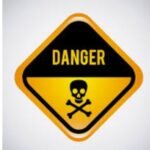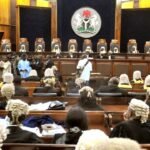By Opeyemi Ibrahim
The National Association of Charcoal Producers, Dealers, Exporters and Afforestation of Nigeria (NACPDEAN) has stated that the publication by Punch Newspaper dated Monday, 10th August 2025 reported by Godfrey George , misrepresented facts regarding the legal status and regulatory framework of charcoal export in Nigeria.
The Acting Secretary-General, Mr Ojei Uche Joseph said this in a press rejoinder on Thursday in Abuja.
“In reporting on the Centre for Renewable Energy and Action on Climate Change (CREACC) event held on 30th July 2025, the publication claimed that “despite a ban on charcoal since 2018 by the Federal Government, enforcement has been weak.” This statement is factually incorrect and misleading.”
While clarifying the Legal Position, Ojei said, contrary to the report by Punch Newspaper, the last official administrative suspension on the export of charcoal and wood products by the Federal Government through the Federal Ministry of Environment was issued on 25th May 2021.
“This administrative suspension was lifted on 19th January 2023 by the same Federal Ministry of Environment, following consultations with stakeholders. Since then, the production, trade, and export of charcoal have been fully recognized as legal, both locally and internationally, provided all regulatory requirements are met.”
Addressing the Regulation and Compliance, NACPDEAN President, Edu Babatunde reiterates that there is nothing illegal about engaging in the charcoal trade when conducted responsibly and in compliance with existing guidelines.
“The Federal Ministry of Environment (FMOE), working with the Federal Ministry of Industry, Trade and Investment (FMITI), has put in place revised regulations to ensure sustainability, environmental responsibility, and proper trade monitoring.
“These regulations include: Mandatory acquisition of a Support Letter from the Federal Ministry of Environment (FMOE) for all exporting companies, Approval from the Federal Ministry of Finance (FMF) before shipments, Compliance with relevant duties and levies when exporting via land borders or seaports and ,Afforestation requirements, mandating the planting of three (3) trees for every tree fell which is prerequisite for the Support Letter.
“It is important to clarify that exporting through Nigeria’s land borders is not illegal, provided that all due processes and regulatory requirements are duly complied with,” Edu stated. This fact was clearly stated by the Nigeria Customs Service representative during the CREACC event, contrary to the misleading impression conveyed by the Punch report, “ he said.
The National President, Edu Babatunde in addressing the Informal Sector, said, while formal trade is regulated, he acknowledged that a portion of the charcoal trade remains informal, making oversight more challenging.
“NACPDEAN is working closely with government agencies, including enforcement bodies and the National Environmental Standards and Regulations Enforcement Agency (NESREA), to integrate informal operators into the formal system for better monitoring and compliance.”
Edu stressed the association’s commitment to strengthening enforcement.
“NACPDEAN is actively collaborating with the FMITI, FMOE, and relevant Ministries, Departments and Agencies (MDAs), security agencies, and other trade associations to implement a comprehensive enforcement framework for the sector. This will ensure that all stakeholders operate responsibly, with particular emphasis on afforestation and environmental sustainability.”
Addressing the Stakeholder Consensus on Regulation at the CREACC Event, which was attended by senior government officials, representatives from the United Nations, and other dignitaries, he said there was unanimous agreement on the need to strengthen the regulatory framework for charcoal production and trade. This includes enhancing afforestation efforts nationwide to secure the long-term sustainability of the industry.
“Charcoal remains a critical household energy source for approximately 70% of Nigerian homes while also serving as a viable export commodity. For this reason, the Federal Government has not considered any renewed ban but instead prioritises regulation and sustainability in the trade,” Ojei said.
Stephen Adeoye, Director of Afforestation of the association, said that NACPDEAN has adopted a self-monitoring and self-assessment mechanism to ensure traceability, environmental responsibility, and compliance with afforestation obligations across both the domestic and export segments of the market.”
He further encourages the public, media, and stakeholders to trust verified information about the sector and to help work together to manage and maintain Nigeria’s charcoal industry for economic growth and environmental balance.
=========











